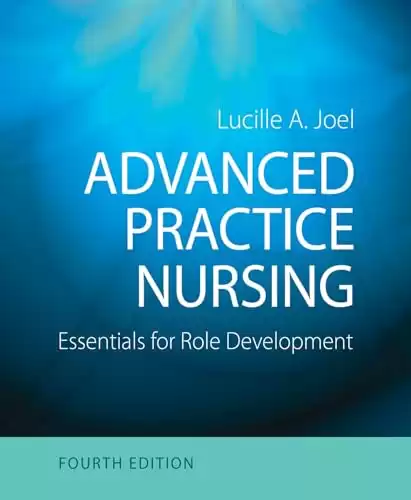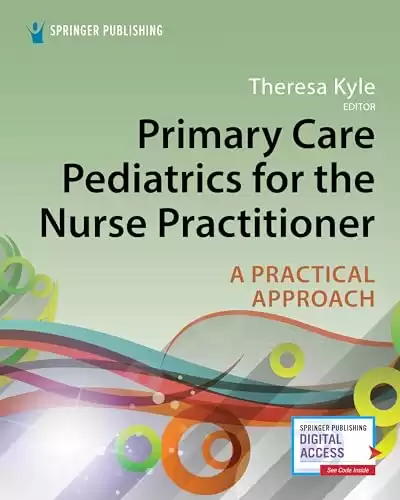As a wannabe nurse practitioner or just someone curious about healthcare careers, knowing the nitty-gritty details about what these medical professionals can and can’t do will help you figure out if it’s a path worth pursuing. In this article, we’ll give you the 101 on nurse practitioners – the training they go through, the settings they work in, the types of patients they see, and how their scope compares to physicians and registered nurses. We’ll also dish on the pros and cons of being an NP, from the great work-life balance to dealing with uncooperative doctors.
Table of Contents
ToggleWhat Is a Nurse Practitioner?
A nurse practitioner, or NP, is an advanced practice registered nurse who has earned a master’s or doctoral degree in nursing. NPs can work independently or in collaboration with physicians and other healthcare professionals. Their role centers around providing primary and preventive care, diagnosing and treating acute illnesses, and managing patients’ overall health.
Nurse practitioners have specialized graduate education and clinical training in areas like family care, adult gerontology, pediatrics, women’s health, and emergency care. To become an NP, you’ll need a Bachelor of Science in Nursing (BSN), work experience as a registered nurse (RN), and to pursue a Master of Science in Nursing (MSN) or Doctor of Nursing Practice (DNP) program.
NPs work in various healthcare settings including private practices, hospitals, nursing homes, schools, and public health clinics. They play an important role in providing access to high-quality care, especially in medically underserved areas. The job outlook for NPs is excellent, with employment projected to grow 28% from 2020 to 2030, according to the U.S.
Education and Training Required to Become a Nurse Practitioner
To become a nurse practitioner (NP), you first need to become a registered nurse (RN) by earning a bachelor of science in nursing (BSN) degree and passing the NCLEX-RN exam. Once you have RN experience, you can pursue a master of science in nursing (MSN) or doctor of nursing practice (DNP) degree. These programs typically take 2-4 years to complete.
As an NP student, you’ll take advanced courses in areas like health assessment, pharmacology, and pathophysiology. You’ll also choose a focus area, known as a population focus or specialty, such as family care, adult gerontology, pediatrics, or women’s health. Your program will include both classroom learning and clinical hours where you gain hands-on experience.
To become licensed as an NP, you must pass a national certification exam in your specialty. Requirements vary by state, but most mandate a certain number of clinical hours, typically around 500-1000 hours. Some states require additional licensure or certifications. Continuing education is also required to maintain your license, typically around 50-100 hours every 1-2 years.
Nurse Practitioner vs Registered Nurse:
Key Differences
- As a nurse practitioner (NP), you have more responsibility than a registered nurse (RN). An NP is an advanced practice nurse who can diagnose and treat common illnesses independently.
Education
- To become an NP, you need a master’s degree in nursing (MSN) and must pass a national certification exam. RNs only need an associate’s degree in nursing (ADN) or a bachelor of science in nursing (BSN) and must be licensed in their state.
Scope of Practice
- NPs can prescribe medication, order tests, and diagnose health conditions. RNs cannot prescribe drugs or diagnose patients. NPs work independently or in collaboration with physicians. RNs always work under the supervision of doctors and NPs.
Pay
- According to the Bureau of Labor Statistics, the median pay for NPs in 2019 was $115,800 per year. The median salary for RNs was $73,300 per year. NPs typically earn higher pay because of their advanced education, skills, and responsibilities.
Specialization
- NPs choose a patient population to focus on, such as family practice, adult care, or women’s health. RNs typically work in a general nursing role and do not specialize in a particular area. NPs develop expertise in diagnosing, treating, and managing conditions for their chosen patient groups.
Job Outlook
- The job outlook is excellent for both NPs and RNs. The demand for healthcare services is increasing as the population ages. The U.S. will need over 200,000 new NPs and over 1 million new RNs by 2026. NPs will be in especially high demand in medically underserved areas.
Discover essential insights for Nurse Practitioners in 'Advanced Practice Nursing: Essentials for Role Development.' Learn how to excel in clinical practice, navigate healthcare policy, and understand the key differences between NPs and RNs. Stay ahead in your career with this indispensable resource.
Nurse Practitioner Job Duties and Responsibilities
As a nurse practitioner (NP), you have a lot of responsibility. You work closely with doctors and other healthcare professionals to provide high-quality care to patients. Your duties typically include:
- Diagnosing and treating common injuries and illnesses. NPs can diagnose and treat many common conditions like infections, high blood pressure, and diabetes. They can order and interpret diagnostic tests such as lab work and X-rays.
- Managing chronic medical conditions. NPs work with patients to develop personalized care plans for conditions like heart disease, obesity, and respiratory illnesses. They monitor patients’ progress and make changes to treatment plans as needed.
- Prescribing medications and other treatments. NPs have the authority to prescribe drugs and therapies for their patients. They can order physical therapy, counseling, and home health care.
- Educating patients about health issues and preventive care. A big part of an NP’s job is teaching patients healthy lifestyle changes and self-care strategies to improve their health. They also counsel patients on risk factors and recommend appropriate screenings and checkups.
- Providing compassionate care and support. NPs spend a lot of time with patients and establish close relationships. They listen to patients’ concerns, answer questions, and offer encouragement and emotional support.
The specific duties of an NP depend on factors like specialty, state regulations, level of experience, and work environment. However, at their core, nurse practitioners aim to provide high-quality, holistic care that helps patients achieve and maintain good health.
Nurse Practitioner Salary and Job Outlook
As a nurse practitioner, your salary will depend on factors like your level of education, years of experience, specialty, and location. According to the Bureau of Labor Statistics, the median pay for nurse practitioners in the U.S. is over $109,000 a year.
- Salary ranges from $40,000 for an entry-level position to $150,000 for an experienced nurse practitioner. The job outlook is excellent, with employment of nurse practitioners projected to grow 28% over the next decade, much faster than average.
Why the Rosy Forecast? A Few Reasons:
- The population is aging, increasing the demand for healthcare services. Nurse practitioners can help fill the growing need.
- There is a shortage of primary care physicians in many areas. Nurse practitioners can help address access to care issues.
- Healthcare reform and the Affordable Care Act have increased access to insurance for many Americans. With more people able to utilize health services, nurse practitioners will be in high demand.
- Nurse practitioners can provide high-quality, cost-effective care. They can manage chronic conditions and provide wellness and preventative services, helping lower costs.
The job outlook is especially strong for nurse practitioners with a master’s or doctoral degree in a specialty area like family practice, adult gerontology, or pediatrics. Rural and medically underserved areas also frequently have a shortage of healthcare providers, so nurse practitioners willing to relocate to these areas may find many career opportunities.
Dive into pediatric primary care with 'Primary Care Pediatrics for the Nurse Practitioner: A Practical Approach.' This essential guide offers Nurse Practitioners practical insights for managing common pediatric conditions and promoting wellness, ideal for those seeking to excel in underserved areas.
What is a Nurse Practitioner: Revolutionizing Healthcare
So there you have it – the nurse practitioner is truly a jack of all trades in healthcare. With advanced education, clinical training, and licensing that enables them to diagnose, treat, and prescribe, they fill the gap between nurses and doctors. And with their personalized, holistic care, they are revolutionizing healthcare. Whether it’s in a clinic, hospital, or specialist office, nurse practitioners are giving patients more access to quality care. And the ability to be your one-stop-shop for health needs. So next time you’re looking for a healthcare provider, consider the flexible and versatile nurse practitioner.
Frequently Asked Questions
What Does a Nurse Practitioner Do?
Nurse Practitioners (NPs) play a crucial role in healthcare, offering advanced patient care, including diagnosing and treating various health conditions, prescribing medications, and focusing on preventive care.
How to Become a Nurse Practitioner?
Becoming a Nurse Practitioner typically involves completing a Bachelor of Science in Nursing (BSN) degree, gaining experience as a registered nurse (RN), and pursuing advanced education through a Master of Science in Nursing (MSN) or Doctor of Nursing Practice (DNP) program.
Nurse Practitioner vs. Registered Nurse: What’s the Difference?
Understanding the difference between a Nurse Practitioner and a Registered Nurse involves recognizing the additional education and training NPs undergo, enabling them to diagnose illnesses, prescribe medications, and provide more autonomous patient care.
Where Do Nurse Practitioners Work?
Nurse Practitioners work in diverse healthcare settings, including hospitals, clinics, primary care practices, specialty offices, and community health centers, providing essential healthcare services to patients of all ages.
What Are the Benefits of Nurse Practitioner Care?
Choosing Nurse Practitioner care offers patients personalized and comprehensive healthcare services, including disease management, preventive care, health education, and accessibility, leading to improved health outcomes and patient satisfaction.











